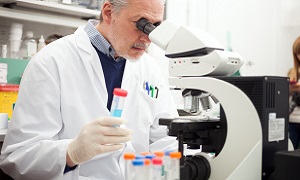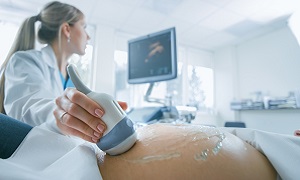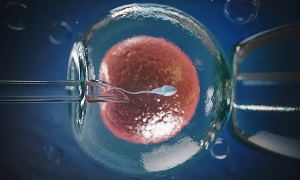Best Doctors in India for Infertility Treatment
Best Hospitals in India for Infertility Treatment
- City: Mumbai, India
Hospital Highlights:
- Fortis Hiranandani hospital was established in 2007.
- The hospital is an advanced tertiary care, multi-specialty hospital equipped with 149 beds.
- The hospital is equipped with a super ICU to provide emergency medical care to critically ill patients.
- The hospital is NABH accredited.
- The critical care facility in the hospital is augmented with the state-of-the-art facilities that facilitate speedier diagnosis and efficient monitoring.
- The hospital provides specialty medical services in cardiology, orthopedic science, pediatric science, neurology, diabetic care, urology, nephrology, ENT, obstetrics, gynecology, cosmetic surgery, bariatric surgery, neuro and spine care.
- City: Gurugram, India
Hospital Highlights:
- W Pratiksha Hospital, Gurugram, is one of the best hospitals in the NCR region. It is also a top hospital in India for IVF. Since its inception, the hospital has performed over 5500 successful IVFs. The hospital also specializes in gynecology.
- With over 20 years of experience in providing quality healthcare, the hospital is known as one of the most trusted and valued health providers in India.
- Equipped with world-class medical facilities and advanced technology, the hospital’s doctors and clinicians also have a track record of delivering excellent results. The hospital is also known for focusing on preventive well-being as much as on curative treatment.
- The hospital has earned the trust of its patients, by providing the best available treatments at affordable costs.
- City: Gurugram, India
Hospital Highlights:
- Paras hospital was established in 2006 and is the 250 bedded flagship hospital of Paras Healthcare.
- The is supported by a team of doctors of international and national repute.
- The hospital is NABH accredited and also the first hospital in the region to have a NABL accredited laboratory.
- The hospital provides specialty medical services in around 55 departments including Neurosciences, Joint Replacement, Mother & Child Care, Minimal Invasive Surgery, Gynecology and Obstetrics, Ophthalmology, Dermatology, Endocrinology, Rheumatology, Cosmetic and Plastic surgery.
- The hospital is equipped with state-of-the-art technologies.
- City: Kolkata, India
Hospital Highlights:
- Fortis Hospital, Anandapur, Kolkata is a world-class super-speciality equipped with the latest technologies in the medical world.
- The hospital is NABH accredited.
- This state-of-the-art facility specializes in cardiology and cardiac surgery, urology, nephrology, neurosciences, orthopaedics, digestive care, emergency care and critical care.
- The hospital, governed by integrated Building Management System (IBMS), has a pneumatic chute system, for quick vertical and horizontal transportation between floors, facilitating speedy transfer of patient specimens, documents, reports, and medicines to the concerned departments.
- The hospital also has a nephrology department with over 28 advanced dialysis units.
- City: Mumbai, India
Hospital Highlights:
- SL Raheja hospital is a 140-bed multi-specialty tertiary care hospital that is being managed by Fortis Healthcare Ltd.
- The hospital is a benchmark in healthcare and medical facilities in the neighborhood of Mahim & the western suburbs.
- L.Raheja Hospital, Mahim has one of the most effective ICU and Casualty care services.
- The hospital provides specialty medical services in Cardiology, Oncology, Neurology, Orthopedics, Mother & Child Care, and in Diabetes.
- City: Mumbai, India
Hospital Highlights:
- Wockhardt Hospitals were established in the year 1973, originally called First Hospitals and Heart Institute.
- Wockhardt Hospitals are super specialty health care networks in India, nurtured by Wockhardt Ltd, India’s 5th largest Pharmaceutical and Healthcare company.
- Wockhardt Hospitals is associated with Partners Harvard Medical International, an international arm of Harvard Medical School, USA.
- Wockhardt Heart Hospital performed India’s first endoscopic heart surgery.
- The hospital has a state-of-the-art infrastructure equipped with the latest technologies and modern equipment.
- It has special Centers of Excellence dedicated to the major specialties to provide hassle-free and high-quality clinical care.
- City: Gurugram, India
Hospital Highlights:
- The CK Birla Hospital in Gurugram is a NABH-accredited multi-specialty hospital.
- The hospital strives to increase the quality of healthcare by focusing on UK NHS nurse and midwife training requirements. Policies and practices derived from the National Institute for Health and Treatment Excellence (NICE) recommendations in the United Kingdom ensuring that a strong focus on safety, high-quality clinical care, and sanitation is maintained.
- The hospital’s cutting-edge technology and facilities allow for real-time communication and seamless collaboration among caregivers, ensuring accuracy and the best possible results. Those with foreign experience and accreditations make up part of the hospital’s team of clinicians.
- City: Ahmedabad
Hospital Highlights:
- As a member of the Apollo Hospitals Group, Apollo Hospitals International Limited, Ahmedabad is one of the most popular and sought-after medical facilities in Gujarat.
- Through its 6 Centres of Excellence and various affiliated branches, which cover all specialties and subspecialties, the hospital provides the most advanced clinical services.
- Since its inception in 2003, the hospital has been providing each patient with the most up-to-date medical equipment and state-of-the-art technology.
- With more than 150 successful organ transplants, including liver and renal transplants, the facility has been able to build a strong and extensive organ transplant program.
- In addition to performing 600 surgeries and caring for over 1800 patients on an IP basis, the hospital sees more than 18,000 patients on average in the outpatient department.
- With one of the biggest cardiology teams in the area, the hospital provides state-of-the-art regional care treatment in Cardiac Sciences.
- Additionally, the hospital offers a broad range of Neuro Interventional techniques to help stroke patients recover more quickly.
- City: Noida, India
Hospital Highlights:
- Jaypee Hospital is the flagship hospital of the Jaypee Group.
- This hospital has commissioned 525 beds in the first phase and has been planned and designed as a 1200 bedded multi-specialty facility.
- It holds the accreditation of the NABH and NABL.
- The hospital has state-of-the-art infrastructure equipped with the latest technologies and modern equipment like 64 Slice PET CT, Dual Head 6 Slice SPECT CT, Gamma Camera, and Da Vinci Robotic Surgery for comprehensive robotic surgical solutions.
- It has special Centers dedicated to the major specialties to provide hassle-free and high-quality clinical care.
- City: Mumbai, India
Hospital Highlights:
- Reliance Hospital is one of the best super-specialty care hospitals in Navi Mumbai.
- The main purpose of this hospital is to become a trustworthy place for the best health and hope for society. The hospital is well connected to the suburbs of Mumbai and Navi Mumbai.
- The hospital has various specialty departments, viz., Accident & Emergency, Anesthesiology, Dental Services, Dermatology, Diabetology, Dietetics Nutrition, Endocrinology, ENT, Gastroenterology, General Surgery, Gynaecology And Obstetrics, Hepato Pancreato Biliary Surgery, Infectious Disease, Internal Medicine, Interventional Radiology, Laboratory Medicine, Minimal Access Laparoscopic Surgery, Nephrology, Neurosciences, Opthalmology, Orthopaedics, Paediatrics, Pain Management Palliative Care, Physical Medicine Rehabilitation, Plastic And Reconstructive Surgery, Psychiatry, Pulmonary Medicine, Radiology, Rheumatology, Transplant, Urology Andrology, Vascular Surgery
Infertility
Infertility is a condition when the female partner is unable to get pregnant, despite multiple attempts. In the US alone, around ten to fifteen percent of couples are known to be infertile.
Infertility may be due to an issue with either you or your partner, or it could also be due to a combination of factors that are preventing pregnancy. However, there are several safe as well as effective therapies that are able to improve your or your partner’s chances of getting pregnant.
Symptoms
Pregnancy not occurring is the main symptom of infertility. Although there are generally no other obvious symptoms, a woman suffering from this condition might have irregular or absent menstrual periods. Men suffering from infertility might also show a few signs such as hormonal problems, changes in hair growth as well as sexual function.
In most cases, couples are able to conceive without any treatment.
For women, you should consider seeing a doctor about infertility issues if you have been unsuccessfully trying to get pregnant for over a year. You might consider seeing your doctor earlier if you:
- Are age 35 or older and have been trying to conceive for six months or longer
- Are over the age of 40
- Have very painful periods
- Have known fertility problems
- Have irregular or absent periods
- Have been diagnosed with conditions such as endometriosis or pelvic inflammatory disease
- Have undergone treatment for cancer
- Have had multiple miscarriages
For men, you should consider seeing a doctor if you have or experience:
- A low sperm count or any other problems with sperm
- A history of testicular, prostate, or sexual problems
- Other members of your family having infertility problems
- Having undergone treatment for cancer
- Small testicles or swelling in your scrotum
Causes of Male Infertility
Generally speaking, in men, infertility is related to the following:
- Effective production of sperm
- Sperm count, or the number of sperm
- Sperm shape
- Movement of the sperm
There are a variety of risk factors as well, related to infertility in men, which include:
- Older age
- Obesity
- Smoking Cigarettes
- Excessive use of alcohol
- Exposure to toxins such as heavy metals, pesticides, and herbicides
Few medical conditions also exist, that can cause male infertility. They include:
- Retrograde ejaculation
- Varicocele, or the veins around your testicles swelling
- Testicles that haven’t descended into your scrotum
- Having antibodies that attack your sperm, eventually destroying them
- A hormonal imbalance, such as low production of testosterone
Various medications and drugs are also there, which lead to male fertility. They include:
- Chemotherapy or radiation therapy, which are cancer treatments
- Medication which is used for rheumatoid arthritis (RA) or ulcerative colitis (UC)
- Recreational drugs like marijuana and cocaine
- Anabolic steroids, which can help in improved athletic performance or hormonal issues like delayed puberty
- Calcium channel blockers used for high blood pressure
- Tricyclic antidepressants
Causes of Female Infertility
Various factors can lead to female infertility, which can affect or interfere with the following biological processes:
- Ovulation, which occurs when the mature egg is released from the ovary
- Fertilization, which occurs when the sperm meets the egg in the fallopian tube after it has traveled through the cervix and uterus
- Implantation, which occurs after a fertilized egg attaches to the lining of the uterus where it is then able to grow as well as develop into a baby
Some of the risk factors for female infertility include: - Increasing age
- Excessive use of alcohol
- Smoking cigarettes
- Being obese, overweight, or significantly underweight
- Sexually transmitted infections
There are also a variety of medical conditions which can lead to infertility, such as:
- Ovulation disorders, which may be caused by hormonal imbalances or polycystic ovary syndrome (PCOS), or pelvic inflammatory disease
- Endometriosis
- Uterine fibroids
- Premature ovarian failure
- Scarring caused by a previous surgery
There are also certain medications as well as drugs which can affect female infertility such as:
- Chemotherapy or radiation therapy
- Antipsychotic medications
- Using high-dosage non-steroidal anti-inflammatory drugs for long-term
- Recreational drugs like cocaine and marijuana
Diagnosis
Before testing for infertility, your doctor or healthcare provider is going to work to understand your sexual habits, and might also make recommendations to help to improve chances of pregnancy. In some infertile couples, sometimes, infertility is unexplained.
It is important to note that evaluation for infertility can be expensive, and sometimes can involve procedures that are uncomfortable. There is also no guarantee that after all the testing and treatment, pregnancy is going to occur.
Tests for men
In order for a man to be fertile, it is important for the testicles to produce healthy sperm, and that the sperm is ejaculated effectively into the vagina, and then travel to the egg. Tests for male infertility generally attempt to determine if any of these processes are impaired.
Some of the tests can include semen analysis, genetic testing, hormone testing, testicular biopsy, imaging as well as any other testing.
Tests for women
For women, fertility relies on the ovaries releasing eggs that are healthy. The reproductive tract must allow the egg to pass into the fallopian tubes, and then join with the sperm, so that the fertilization can take place. Your doctor can recommend a general physical exam, as well as few other tests such as ovulation testing, ovarian reserve testing, imaging tests, etc.
Treatments
If despite multiple attempts, a couple is unable to achieve pregnancy, then treatment is an option. The type of treatment that your doctor might recommend might depend on a variety of factors, such as:
- The cause of infertility, if known
- The overall health of you as well as your partner
- How long you’ve been trying to conceive
- Age
For Men
Male infertility is treatable in various ways, depending on the cause. Generally, surgery, medication and assisted reproductive technology are the main treatment options.
Medications
Surgery
Surgery helps to fix obstructions that prevent sperm from being present in the ejaculation. It might also help in correcting medical conditions such as varicocele. Sometimes, sperm is retrieved from the testicles directly, after which it is used in treatments with assisted reproductive technology.
Assisted reproductive technology
Assisted reproductive technology generally refers to treatments in which eggs and sperm and handled outside the body. It includes treatments such as in vitro fertilization (IVF), sperm injection, or intracytoplasmic sperm.
For Women
Although surgery can be used to treat female infertility as well, it has become quite rare now due to advancements in other fertility treatments. Surgery can improve fertility by:
- Correcting an abnormally shaped uterus
- Removing fibroids
- Unblocking fallopian tubes
Reproductive assistance
Reproductive assistance involves methods such as intrauterine insemination and assisted reproductive technology. Intrauterine insemination involves injecting millions of sperm into a woman’s uterus near the time of ovulation.
IVF
Medications
Prevention
Having regular intercourse several times around the ovulation time can increase the chances of pregnancy. It is also noteworthy that all types of infertility are not preventable.
For men, it is important to avoid using too much tobacco, alcohol, or any such drugs, as well as any medications that can impact fertility. It Is also advisable to avoid high temperatures in hot tubs and hot baths, as well as avoid exposure to any kind of industrial or environmental toxins. Regular exercise can also help in improving sperm quality.
For women, it is important to quit smoking, reduce or stop the intake of alcohol, and also limit caffeine. Regular exercise is also important and can prove to be extremely beneficial.

















